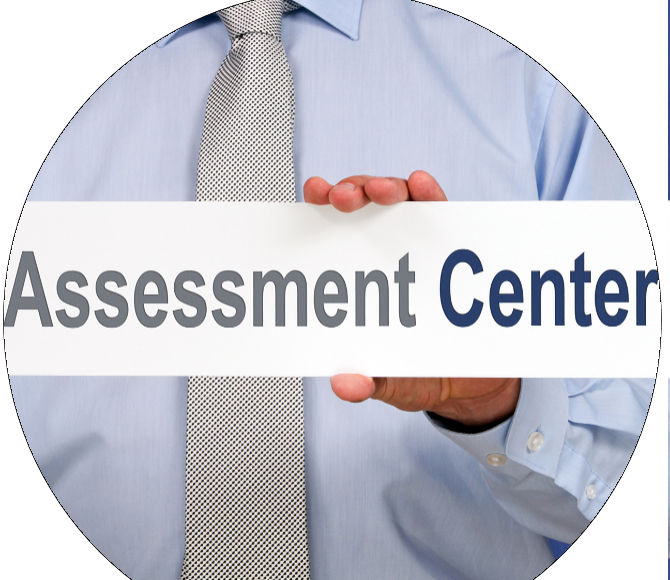You may have heard of pre-employment tests and assessments, but have you ever thought about what these tools can really do for your recruitment process?

When trying to recruit top talent, the results of CV reviews and unstructured interviews are not sufficiently reliable, as candidates may include misleading statements in their CVs and provide inaccurate information in face-to-face interviews, while trying to impress the recruiter.
This is why many companies use pre-employment assessment centres to further improve the quality of recruitment in their company.
What is a test-oriented assessment centre for pre-employment assessment?
Pre-employment testing and assessment is one of the most objective ways of predicting job performance and suitability for the company. It involves using tests and questionnaires to assess candidates on a wide range of aspects such as cognitive abilities, critical thinking, personality, preferences and motivation, among others.
Well-designed and scientifically validated tests are a reliable and objective way of assessing candidates and provide concrete results that can be standardised for all candidates. Recruiters can use test results to make better informed and more defensible hiring decisions. The use of pre-employment testing and assessment by both large and small companies is increasing dramatically year over year. For example, 89 of the Fortune 100 companies use their personality test to screen candidates and predict their future success.
There are many types of tests you can choose from and your testing needs may vary depending on what you are looking for in candidates for a specific department or sector. For executive recruitment, you will probably want to assess cognitive abilities and general personality traits. If you are recruiting a waiter, you may be more interested in personality traits such as sociability, speed of execution and conscientiousness. You construct your assessment profile together with the person who will carry out the assessments in the assessment centre.
However, although you can use different types of tests, ideally they should be normative - so that candidates' scores can be quickly compared; reliable and valid - to be a proven predictor of job performance, the tests must be scientifically validated and candidates must get similar results if they retake the test; difficult to gamble on - the answers to the tests may not be available online and the candidate should not be able to buy the test online before taking it for you. The test must be an accurate assessment of actual skills and behavioural traits; truthful - tests cannot include 'leading' questions and must be designed so that the general honesty of candidates can be verified.
The tests are administered by the assessment centre either face-to-face or remotely. To ensure the quality of the administration, remote tests are sometimes administered in "video-conference" mode, which allows the person administering the tests to verify the conditions of the test and the identity of the candidate.
3 main reasons why you should use pre-employment testing and assessment in your recruitment
1. Pre-employment tests and assessments are more objective.

Use objective data to make better hiring decisions. Pre-hire tests can provide you with useful, standardized information about candidates and allow you to predict job performance and fit with the company. By using this data to identify and hire the right candidate, you will also improve the overall productivity and efficiency of your teams.
Unlike face-to-face interviews, pre-employment testing allows you to assess a wide range of applicable skills and personality traits. It allows you to assess a variety of candidate characteristics, such as: cognitive abilities, strategic thinking, domain knowledge, self-confidence, problem-solving ability, leadership ability, friendliness, organisational skills, helpfulness, analytical skills, risk-taking, productivity, initiative, honesty, interpersonal skills, reliability, positivity, empathy, collaboration, etc.
2. pre-employment testing and assessment increases employee retention
Just as important as recruiting the right candidate, it is crucial for companies to retain talent and reduce turnover. With pre-employment testing and assessment, you can more effectively screen candidates for aptitude and personality and assess whether a candidate is likely to stay in the job and fit into the company culture.
To assess the suitability of candidates for a position, many factors can be taken into account, such as passion for learning, general ambition, ownership and initiative, empathy, communication skills, critical thinking, collaboration skills, honesty, motivation, curiosity, etc. Screening for these competences in a standard face-to-face interview can be very difficult.
Employees who are not a good fit will end up underperforming in terms of commitment to their role and productivity, and are therefore more likely to leave. And as you know, replacing the wrong employee can be very costly and time consuming. But pre-employment testing and assessment can reduce hiring and training costs by providing you with data that will help you hire the right people for a job the first time.
3. Pre-employment testing and assessments increase legal defenses
Contrary to popular belief, pre-employment tests and assessments can, if used properly, increase the legal reliability of your hiring process. The use of pre-employment tests and assessments should follow the same guidelines as any other employment selection method (including CVs, interviews, etc.).
The legislation provides that pre-employment tests and assessments are perfectly legal, as long as they are job-related. Tests have an additional legal defence in that they provide employers with objective and scientifically validated indicators of success in a job, unlike other subjective hiring methods. They actually give companies a chance to better defend their hiring procedures if someone questions the legality of their hiring process.
Article Translated from our French site